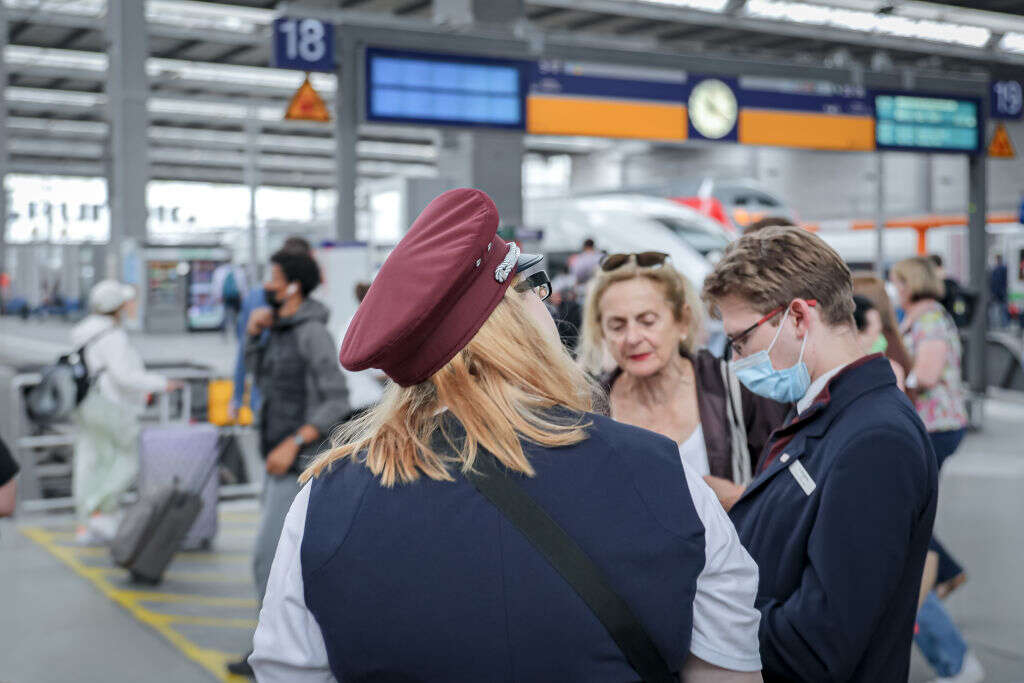
Last week, the German Transport Minister announced that, from January, Germany would be introducing a monthly €49 public transport ticket. This scheme follows the hugely popular ‘Deutschlandticket’ of the past summer, which offered unlimited public transport for just €9 a month.

Despite it costing the federal government €2.5bn, German Chancellor Olaf Scholz called the €9 ticket “one of the best ideas we had”. The ticket was hugely popular, selling around 52 million across the three months, preventing 1.8 million tonnes of CO2 emissions, and reducing inflation by a whole two percentage points. But analysis of the scheme and how it was used, suggests that its €49 replacement is unlikely to continue the effect.
The introduction of the €9 ticket at the beginning of June had an immediate impact on the volume of people travelling by public transport. Data from the Federal Statistical Office of Germany shows that in early June rail travel of 30km or more was 50% above its 2019 levels. And it sustained throughout July and August, at 45% above 2019 volume. When the scheme ended at the beginning of September, it immediately dropped.
However, the introduction of the €9 ticket didn’t seem to significantly reduce the number of 30km+ car journeys in Germany, suggesting these longer journeys were extra ones people were taking, not replacing car journeys they would have previously taken.
That only reflects longer journeys, not other short day-to-day trips people take for work, school and leisure. Analysis by Tomtom found that 23 of the 26 German cities they surveyed saw a decrease in congestion, most notably Hamburg, which saw car traffic fall by 20% in June compared with May. Academics in Potsdam found that air pollution levels fell by over 6%.
A study from academics at Erfurt University of Applied Sciences found that during the €9 ticket period, 63% of those who used the ticket increased their usage of public transport, and a further 28% kept it the same; 30% said the ticket reduced their car usage (while 20% said they never used a car anyway).
Most significant is that 45.7% said they travelled more often overall, with the study finding it most increased people’s participation in leisure and social activities, especially among those on low incomes.
Overall, the Association of German Transport Companies (VDV) found that 10% of the €9 ticket journeys replaced journeys that would otherwise have used a car. So for those who travelled frequently, it was a huge benefit, with three-quarters of ticket-holders saying the ticket was a significant financial relief. But for many, it allowed them to use public transport to improve their social participation where they may not have before.
Almost every respondent said they hoped the offer would continue after September, but given the considerable government bill, that seemed unlikely, which explains the latest announcement of the €49 ticket.
For those who already take public transport frequently, this will be a significant saving, such as in Berlin, where a monthly ticket usually costs €86, or in Munich, which costs anywhere from €60 to €230.
When it comes to encouraging new people to use public transport, and getting cars off the road, it is yet to be seen whether this €49 ticket will have an impact. In the Erfurt University study, respondents were asked how much they would be willing to pay. The median was €25, with 52.4% saying between €16 and €30.
Only 10.7% said they would be willing to pay upwards of €46.
Already we are seeing individual cities step in to offer their own alternatives. Bonn, in west Germany, replaced the scheme with a €19 ticket, while Berlin is offering a €29 ticket for its central two zones, initially offered through December and now extended to March.
[Read more: The most dangerous roads in the UK for cyclists and pedestrians revealed]






